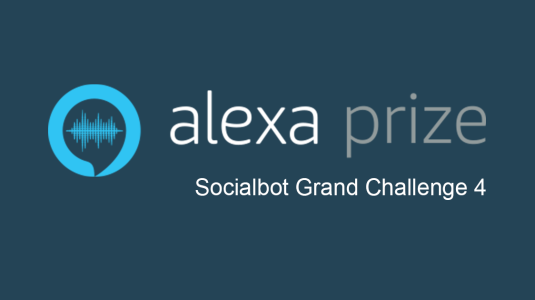-
NAACL 20192019Open Information Extraction (OpenIE), the problem of harvesting triples from natural language text whose predicate relations are not aligned to any pre-defined ontology, has been a popular subject of research for the last decade. However, this research has largely ignored the vast quantity of facts available in semistructured webpages. In this paper, we define the problem of OpenIE from semi-structured
-
NAACL 20192019We explore active learning (AL) for improving the accuracy of new domains in a natural language understanding (NLU) system. We propose an algorithm called Majority-CRF that uses an ensemble of classification models to guide the selection of relevant utterances, as well as a sequence labeling model to help prioritize informative examples. Experiments with three domains show that Majority-CRF achieves 6.6%
-
NAACL 2019 Workshop on Structured Prediction2019We propose a semi-supervised learning framework to boost the performance of slot tagging in the low resource case, where we only have a small labeled target dataset available for model training, but we have access to a large unlabeled source dataset. Our framework consists of two components: first performing data selection to find a subset of the source data that is semantically similar to the target data
-
NAACL 20192019Neural text-to-speech synthesis (NTTS) models have shown significant progress in generating high-quality speech, however they require a large quantity of training data. This makes creating models for multiple styles expensive and time-consuming. In this paper different styles of speech are analysed based on prosodic variations, from this a model is proposed to synthesise speech in the style of a newscaster
-
NAACL 20192019In this paper, we consider advancing webscale knowledge extraction and alignment by integrating OpenIE extractions in the form of (subject, predicate, object) triples with Knowledge Bases (KB). Traditional techniques from universal schema and from schema mapping fall in two extremes: either they perform instance-level inference relying on embedding for (subject, object) pairs, thus cannot handle pairs absent
Related content
-
November 06, 2020Work aims to improve accuracy of models both on- and off-device.
-
November 03, 2020Fourth challenge features four new teams.
-
October 30, 2020Prosody transfer technique addresses the problem of “source speaker leakage”, while prosody selection model better matches prosody to semantic content.
-
October 29, 2020Watch the replay of Shehzad Mevawalla's Interspeech 2020 keynote talk.
-
October 29, 2020Watch the replay of the Interspeech 2020 industry forum session.







